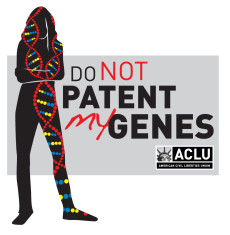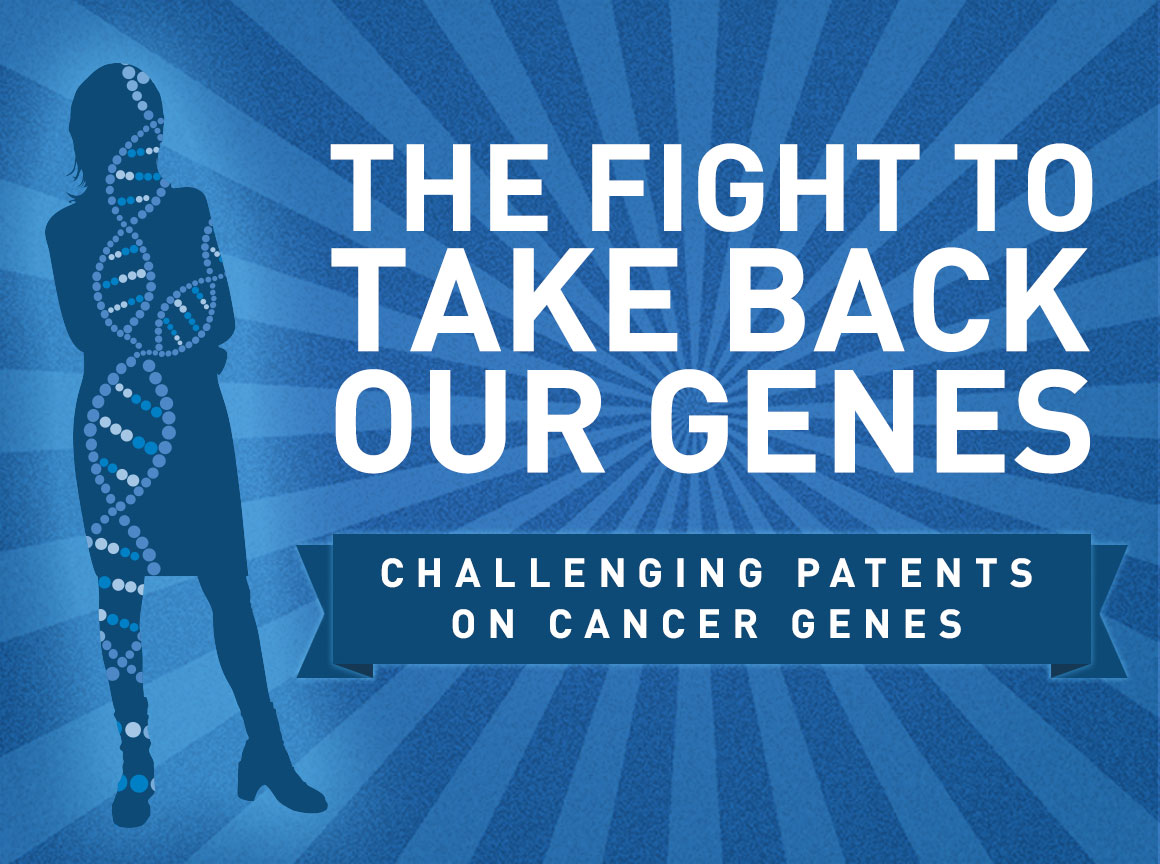ACLU, PUBPAT And U.S. Solicitor General In Federal Appeals Court Today Challenging Patents On Human Genes Linked To Breast Cancer

Groups Urge Court To Uphold Ruling That Patents On Genes Are Illegal
FOR IMMEDIATE RELEASE
CONTACT: (212) 549-2666; media@aclu.org
WASHINGTON – The American Civil Liberties Union, Public Patent Foundation (PUBPAT) and U.S. Solicitor General Neal Katyal were in the U.S. Court of Appeals for the Federal Circuit in Washington, D.C. today urging the court to uphold a lower court ruling that patents on two human genes are illegal.
“The human gene is a product of nature and no more patentable than a human kidney,” said Chris Hansen, staff attorney with the ACLU Speech, Privacy and Technology Project who argued on behalf of the plaintiffs today. “The district court ruling striking down patents on human genes was a victory for the free flow of ideas and information, and could lead to important medical and scientific advances. The appeals court should uphold that ruling.”
The ACLU and PUBPAT brought a lawsuit in May 2009 against the U.S. Patent and Trademark Office (USPTO), Myriad Genetics and the University of Utah Research Foundation, which hold the patents on two human genes related to hereditary breast and ovarian cancer, BRCA1 and BRCA2. The lawsuit charges that the patents restrict both scientific research and patients’ access to medical care, and that patents on human genes are illegal because genes are “products of nature.” The groups brought the case on behalf of breast cancer and women’s health groups, individual women, geneticists and scientific associations representing approximately 150,000 researchers, pathologists and laboratory professionals.
In March 2010, a New York federal court ruled in favor of the plaintiffs, holding that the patents are illegal. Myriad and the University of Utah have appealed that ruling. The court granted the USPTO’s request that it be released as a defendant in the lawsuit.
The U.S. government later filed a friend-of-the-court brief agreeing with the groups that isolated DNA is not patentable, and presented arguments today in court. Several major organizations, including the American Medical Association, the March of Dimes, AARP and the American Society for Human Genetics, filed friend-of-the-court briefs in support of the lawsuit.
“Since the beginning, this case wasn’t about patent law, it was about the right of women to know what genetic mutations they might have in their own bodies and the right of physicians to help them in doing so,” said Dan Ravicher, PUBPAT’s Executive Director and Lecturer in Law at Benjamin N. Cardozo School of Law. “Today we asked the Court of Appeals to apply patent law’s longstanding prohibition on the patenting of nature to protect these rights from patents that the government now agrees should have never been issued in the first place.”
Attorneys on the case include Hansen and Aden Fine of the ACLU Speech, Privacy and Technology Project; Sandra Park and Lenora Lapidus of the ACLU Women’s Rights Project; and Ravicher and Sabrina Hassan of PUBPAT.
More information about the case is available online at www.aclu.org/brca
Stay Informed
Every month, you'll receive regular roundups of the most important civil rights and civil liberties developments. Remember: a well-informed citizenry is the best defense against tyranny.



